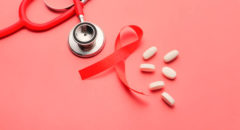
Being diagnosed with human immunodeficiency virus (HIV) can be devastating. Fortunately, doctors have good news for the thousands of African Americans who get this diagnosis every year. While it’s true that HIV weakens the immune system and can develop into acquired immunodeficiency syndrome (AIDS), it doesn’t have to get to that stage. With the proper treatment and lifestyle changes, you can live well with the virus. Here’s how your health management may have to change after your diagnosis.
1. You May Need A Different Doctor
While a general practitioner is usually able to handle your care, some people may need to work with an HIV specialist.
Apart from offering specialized care to those who have been diagnosed with the virus, a specialist’s services may also include guidance on nutrition and counseling. If you feel this would meet your needs, make sure to talk to your doctor about the available options.
2. There Will Be Scheduled Visits
Once you’ve been diagnosed, your doctor will need to see you regularly. These visits will be necessary to follow up on how you’re feeling and how well your medications are working.
Since HIV has some serious complications, your doctor will want to look for early signs of illnesses such as pneumocystis pneumonia, thrush, cryptococcal meningitis, tuberculosis, and lymphoma.
3. Regular Blood Tests Are A Given
Your initial HIV diagnosis won’t be your last blood test. Regular tests will be used to track your viral load as this is how doctors determine if your medication regimen is working.
With the right drugs, your load should show signs of decreasing over time. In fact, the aim is to get to the point where the viral load can’t be detected by the blood tests at all. Bear in mind that it’s not a cure, it only means that the virus is under control.
RELATED: Your Guide to HIV Medications
4. You’ll Have A Medical Regimen
The drugs that are used to manage HIV are known as antiretrovirals and a wide range of them are available. They are usually divided into categories based on how they work. For example, nucleoside/nucleotide reverse transcriptase inhibitors (NRTIs) interfere with how the virus








